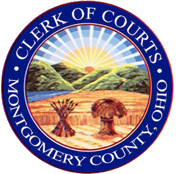
Montgomery County Municipal Court
William C. Cox, Presiding and Administrative Judge
Mike Foley, Clerk of Courts
Tenant and Landlord Frequently Asked Questions (FAQ)
What are my rights as a tenant?
A tenant is any person who occupies or possesses the residential property of another and pays for it under a rental agreement.
As long as you, the tenant, do what the rental agreement and/or the law requires you to do, you have the right of exclusive possession of the property until the lease expires.
You have the right to complain to a government agency about your landlord's violation of housing laws or regulations that affect health and safety.
You have the right to complain to your landlord if he or she fails to perform any legal duties. If you complain and the landlord retaliates against you by increasing rent, decreasing services or seeking to evict you for taking such action, the landlord has violated the law.
You have the right to join with other tenants to bargain with your landlord about the terms of the rental agreement.
You have the right to know the name and address of the owner of your residential premises and that of the owner's agent, if there is one. This information must appear either in your written lease or be given to you in writing at the beginning of your tenancy if the rental agreement is oral.
You have a right of privacy, which the landlord must respect. The landlord may enter your apartment after reasonable notice (at least 24 hours) for certain legitimate reasons.
If, after the landlord has received a written complaint from you about the premises and fails to make repairs within 30 days or less (depending on the severity of the housing conditions), you, as a tenant, may have a right to withhold your next monthly rental payment and deposit it with the clerk of municipal or county court in the county where you reside, or you may terminate the lease and move out.
The right to deposit rent money with the court cannot be used against a landlord who owns fewer than four dwelling units if you receive written notice of this fact when you originally move into the premises. You may not use the remedies of termination or rent deposit if you are not current in your rental payments.
Your furnishings or possessions may not be seized by the landlord for the purpose of recovering rent payments.
What are my obligations as a tenant?
As a tenant, you must meet the following obligations:
- Comply with the standards of all housing laws that materially affect health and safety.
- Refrain from damaging the rental premises.
- Keep the premises in a fit and habitable condition.
- Keep the premises safe and sanitary.
- Keep plumbing fixtures in the dwelling unit as clean as their condition permits.
- Dispose of all garbage in a safe and sanitary manner.
- Operate all electrical and plumbing fixtures properly.
- Maintain in good order all appliances provided by the landlord when the rental contract calls for it.
- Cause no disturbance to your neighbors.
- Allow your landlord reasonable access (upon 24 hours notice) to the premises to inspect, make repairs, deliver large parcels or show the property to prospective buyers or renters.
- See that controlled substances are not illegally used on the property.
What are my rights as a landlord?
If you own rental property and permit another to use, occupy or possess your residential premises for a period in return for money or something of value, you are a landlord.
You, as a landlord, can rent your property for any amount you desire as long as a rent increase is not a retaliatory act against a tenant.
Subject to the provisions of Ohio's Fair Housing Act, you may rent to anyone you wish and establish any conditions and terms in a rental contract that do not conflict with state law.
You may, in fact, refuse to rent to anyone, provided you do not discriminate against a tenant because of the tenant's race, color, religion, ancestry, sex, national origin, handicap or family status.
You may evict the tenant for nonpayment of rent, or for breaking any material conditions that you have agreed on. Written notice of the intent to file an eviction action must be given to the tenant before you file such an action in court.
You may notify the tenant in writing if you wish to secure the tenant's compliance with obligations under the law.
After reasonable notice, you have the right to enter the dwelling unit to inspect, repair, make improvement or supply services, or show new tenants the property.
You have the right to have your property returned to you in as good a condition as it was when the tenant took possession, except for ordinary wear and tear.
What are my obligations as a landlord?
The landlord has certain obligations whether or not they are written into a rental agreement. You, as landlord, cannot change them or require the tenant to assume them, and the tenant cannot agree to do without the performance of these obligations under any circumstances.
As a landlord, you must do the following:
- Comply with all the standards of housing and health codes that materially affect health and safety.
- Make all repairs and keep the rental premises in a livable condition.
- Keep all common areas of the premises in a safe and sanitary condition.
- Maintain in good working condition all electrical, plumbing, heating and air conditioning fixtures and appliances that you have supplied or are required to supply.
- Provide and maintain trash receptacles and remove all trash when you own four or more units in the same building.
- Supply running water, reasonable amounts of hot water and reasonable heat at all times unless the tenant has assumed responsibility with the utility company.
- Terminate the lease of a tenant illegally using or permitting the use of controlled substances on the property.
- Not abuse your right to enter the property for legitimate reasons; if this right is abused, you have invaded the tenant's privacy.
- Not attempt to evict a tenant without a court order by changing the locks or removing the tenant's belongings.
- A landlord may be liable to a person sustaining injuries in an area over which the landlord retains control or as a result of failure to maintain and repair certain basic items as required by law.
- If there is a written rental agreement, you, as a landlord, are required to furnish the tenant with your name and address and the name and address of your agent, if any.
- If there is an oral rental agreement, you are required to furnish the same information in writing to the tenant when the tenant moves in.
What is a rental agreement?
A rental agreement or lease is a written or an oral contract between persons. A properly written agreement will eliminate most of the misunderstandings and problems that commonly arise between a landlord and a tenant. A rental agreement benefits and protects both parties, and is an efficient way of handling a business transaction.
Your written agreement may create a tenancy from week to week, month to month or year to year. For your protection, either as a landlord or as a tenant, it is usually wise to specify the exact manner in which the rental agreement may be terminated.
If there is no written lease, the landlord or the tenant may end a week-to-week tenancy by giving the other party at least seven days notice prior to termination. Both parties may end a month-to-month oral tenancy by giving the other party at least 30 days notice prior to the end of the current monthly term.
A landlord may not limit or escape responsibility for legal liability by the use of contract clauses in a rental agreement signed by the tenant. If such a clause appears in any rental agreement, it will not be used against the tenant.
Ordinarily, a rental agreement is prepared by the landlord. For this reason, any doubtful or ambiguous terms are decided against the landlord and in favor of the tenant.
Under Ohio law, both tenants and landlords may recover damages and reasonable attorney's fees, in some situations, for the unlawful act of the other party.
How do I get back my security deposit?
When a tenant moves out at the end of a rental agreement, there are certain rules for both the tenant and the landlord to follow.
The tenant should surrender the premises in as good condition as they were when the tenant moved in. This requires the tenant to leave the premises as he or she found them, making only the repairs needed to restore the premises. The tenant is not responsible for ordinary wear and tear on the premises. The tenant must leave a new or forwarding address in writing with the landlord.
After the tenant moves out, any of the tenant's money or property that the landlord holds as a security deposit can be applied to damages the landlord has incurred as a result of the tenant's actions. If the landlord deducts any amount, the deductions must be itemized in writing by the landlord and delivered together with the balance due to the tenant at the forwarding address provided by the tenant within 30 days after the tenant has moved.
If the landlord does not comply with this law, the tenant may recover damages and attorney's fees through a court action. This is one of several instances where, under Ohio law, tenants and/or landlords may recover damages and reasonable attorney's fees for the unlawful act of the other party.
Who owns what?
In general, unless otherwise agreed, "fixtures" belong to the landlord. Fixtures include parts of the building such as sinks, furnaces, water heaters and other equipment that is either built-in or fastened to the property. Obviously, anything brought onto the premises by you as a tenant, which does not become a fixture, belongs to you and may be removed by you at the termination of the lease.
Do I need an attorney?
This information is based on Ohio law and is issued to inform, not to advise. As a landlord or tenant, you should not try to apply or interpret the law without the help of an attorney who knows the facts, because the facts may change the application of the law. Low-income tenants may qualify for free legal services from legal aid programs, which are available in all Ohio counties.
This factsheet is intended to be reproduced by lawyers and others for free distribution to the public.
It may not be reproduced commercially for sale at a profit.
Justice is Hard Work · Ohio State Bar Association
 CLERK OF COURTS WEBSITE
CLERK OF COURTS WEBSITE